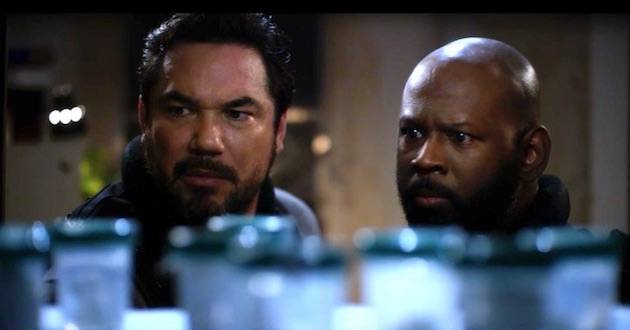A trio of forthcoming movies hailed by pro-life activists — led by the much anticipated “Gosnell” opening Oct. 12 — could influence Americans’ thinking on abortion, critics say.
Starring Dean Cain as a detective, the well-made PG-13 film explores the shocking crimes and trial of abortionist Kermit Gosnell, who received a life sentence for killing thousands of babies over three decades.
Christians “have been behind the curve, and we’re just now starting to realize the importance” of promoting the sanctity of unborn life through film, Christian filmmaker and media consultant Phil Cooke. Gosnell’s potential impact is indicated by “just how furious people on the other side, the pro-abortion people, have been in trying to stop the movie, trying to reduce its credibility, trying to not get it aired in theaters.”
Gosnell, produced by Phelim McAleer and Ann McElhinney, tells the true story of Philadelphia abortionist Kermit Gosnell, who is serving three consecutive life sentences for murdering three infants born alive after abortion attempts and committing involuntary manslaughter of a woman during a botched abortion.
Gosnell’s release, by and large, has not been covered in mainstream media outlets. That reality is “the result of both malign neglect and active suppression of inconvenient truths,” conservative commentator Michelle Malkin wrote in a National Review article.
Facebook and NPR have refused to run paid advertising for Gosnell, and crowdsourcing website Kickstarter banned Gosnell’s producers from using the platform to raise money, according to media reports.
Nevertheless, Gosnell (rated PG-13 for realistic language and violent images) is “a must-watch for anyone who wants to understand the controversy over abortion in America,” said Metro Voice film critic Michael Foust.
“It does a great job spotlighting a group of heroic pro-choice prosecutors who did what was right in bringing the case,” said Foust, who covers entertainment for the Metro Voice News. “But it also does something more important by educating the public about abortion procedures and abortion laws.
“Yes, what Kermit Gosnell did was illegal and horrific — snipping the spinal cords of babies — but let’s not forget that second- and third-trimester abortions take place in clinics every day in the U.S.,” Foust said in written comments. “They remain legal. Doctors ensure the procedure’s legality by killing the unborn baby in the womb: injecting potassium chloride to stop its heart, suctioning out its brain and then ripping it apart limb by limb. There is a legal difference between what Kermit Gosnell did and what abortionists do, but there is no moral difference.”
Gosnell could, Foust said, “help change hearts and minds.”
“America once was a book culture,” Foust said. “We persuaded one another through the printed word. That is no longer the case. Today, Americans develop their beliefs and worldview through mass media — movies, television and even YouTube videos. The pro-life movement has had great success winning hearts and minds through the art of mass media persuasion, and it would be foolish not to continue.”
Set for 2019 release are “Unplanned,” the story of Abby Johnson, a Planned Parenthood clinic director turned pro-life champion, and “Roe v. Wade,” which relates the backstory behind the landmark 1973 U.S. Supreme Court ruling.
Roe v. Wade began filming earlier this year, according to media reports, and reportedly has had crew members resign over the film’s pro-life content. Unplanned co-writers and co-directors Chuck Konzelman and Cary Solomon — who also co-wrote “God’s Not Dead” — told the Hollywood Reporter they are preparing for opposition as the film nears release.
Despite such pushback, pro-life filmmakers should continue to share life-affirming stories, said Cooke, author of “The Way Back: How Christians Blew Our Credibility and How We Get It Back.”
“You get this drip, drip, drip in our culture today of” news reports and entertainment suggesting that “even up to the last minute, abortion should happen,” Cooke said. With “the accumulation” of such media content, “there’s no wonder we see the direction in our culture heading the way it is.”
Pro-life stories, Cooke said, can help stem the cultural tide.
A story “is something that may not dawn on you right away,” Cooke said. “It may not be a revelation like a teaching moment. But an hour, a day, a week later, suddenly that story goes off in your head and you realize, ‘I get it.’ When that happens, it’s so powerful.”
— by David Roach | BP
